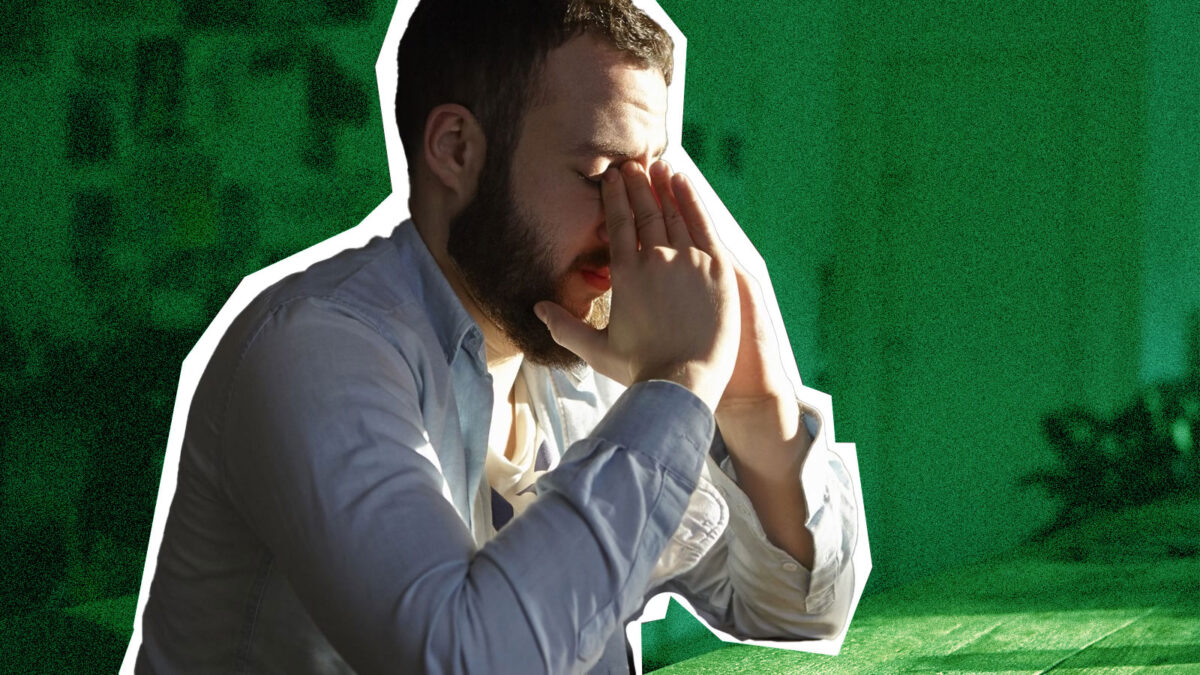More and more men are finding themselves struggling with day to day life and feelings of anxiety but it’s important to know, that not only is it quite common – one in five men will experience anxiety at one stage in their life – there are also ways to manage those feelings.
If you consider yourself ‘high functioning’ – meaning you can get up, go to work, be productive, get chores and errands done, exercise etc. – but have moments of stress or anxiousness; you may suffer from anxiety and not even realise it. It’s actually called ‘high functioning anxiety’.
It’s important to look out for any and all signs of anxiety, as without a diagnosis or treatment, high functioning anxiety can get worse and worse; and can eventually manifest itself with panic attacks. As Tom Cronin, renowned speaker and corporate meditation and mindfulness trainer can attest, this can be hard as the signs can be very small at first.
For example, as Tom outlines, men who have high functioning anxiety regularly suffer from the following minor symptoms.
- “They find it hard to go to sleep or they wake up at two or three in the morning.”
- “They have a tapping leg when they’re sitting in a chair [and] don’t realise that it’s constantly moving.”
- “They get restless legs when trying to sleep at night.”
- “They feel like they need to drink alcohol to relax at the end of the day.”
- “They get sweaty palms throughout the day.”
- “They get snappy and agitated when things aren’t working out for them.”
- “They feel constantly drawn to their phone [and] can’t seem to pull himself away from it.”
Another hard thing when it comes to diagnosing high functioning anxiety, is that it can present itself differently in different people. Justin Noble, Resilience Coach and founder of the Noblemen Collective – a community for men who want to heal, grow and connect – says it’s important for men to learn how to recognise the physical feelings in their own bodies and assess what’s prompted those feelings of stress, anxiousness and/or irritation.
“Just notice the way you are feeling things in your body. Anxiety can be a feeling in the pit of [the] stomach; a churn or a pain. Becoming aware of what’s going on in your body is so important…
For me, I’ll notice an electricity in my hands or in my fingers… or a tingling. That’s a prompt for me to go ‘hang on, what’s triggering me?’ And then if you can, take yourself out of the situation or take some time to yourself… close your eyes; do some breathing exercises.”
If you suffer from any of the above symptoms or you feel moments of extreme stress regularly – but can still go about your daily life – chances are you have high functioning anxiety, so it’s probably a good idea to take action before things get worse. Admittedly, this can be daunting as, unfortunately, there is still stigma surrounding mental health issues.
If you think you may suffer from high functioning anxiety but feel apprehensive about reaching out to your friends and family, or even a trained psychologist, for help, there are other things you can do. Justin advises that men should:
“Write everything down that’s on your mind, get it down on paper… Often getting it all down on paper can really relieve those anxious feelings. It’s a bit of a cliché but journaling really can be a therapeutic and helpful way to deal with [anxiety].”
He also strongly encourages men to still seek help from a professional even if they’re nervous about it.
“It’s important for men to know that trained professionals [are] trained to be unbiased. They’re not your mates, they’re not going to spread gossip… They’re just there for you to talk about and help you with what you’re going through.”
If you’re struggling with anxiety, please contact Beyond Blue or see your GP for help.
Read Next
